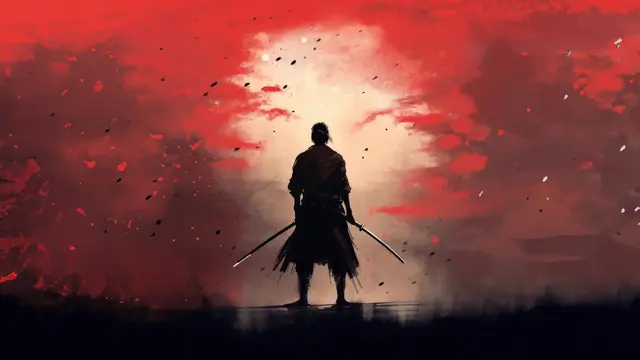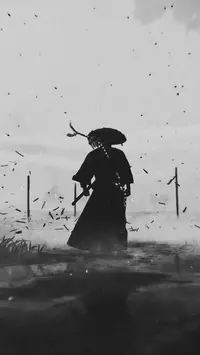The NAPOLEONIC WARS
Here's a more detailed overview:
1. BACKGROUND:
- French Revolution: The wars were, in part, a consequence of the French Revolution (1789-1799), which led to political upheaval in France and the rise of Napoleon.
2. TIMELINE:
- War of the Third Coalition (1805): Napoleon defeated Austria and Russia at the Battle of Austerlitz.
- War of the Fourth Coalition (1806-1807): Victories at Jena-Auerstedt and Friedland led to the Treaty of Tilsit, establishing French dominance.
- Peninsular War (1808-1814): Napoleon faced guerrilla warfare in the Iberian Peninsula, draining French resources.
- War of the Fifth Coalition (1809): Napoleon defeated Austria at the Battle of Wagram.
- Invasion of Russia (1812): The disastrous Russian campaign resulted in substantial French losses.
- War of the Sixth Coalition (1813-1814): Defeats at Leipzig and the invasion of France led to Napoleon's first abdication.
3. EXILE AND THE HUNDRED DAYS (1814-1815):
- First Abdication: Napoleon was exiled to Elba in 1814, but he escaped and returned to France in 1815.
- Waterloo (1815): The final battle saw Napoleon's defeat by British and Prussian forces, leading to his second abdication.
4. LEGACY:
- Congress of Vienna (1814-1815): European powers convened to restore stability, redrawing borders and establishing a balance of power.
- Napoleon's Exile to Saint Helena: After Waterloo, Napoleon was exiled to the remote island of Saint Helena, where he died in 1821.
5. IMPACT:
- Military Tactics: Napoleon's use of maneuver warfare and artillery tactics influenced military strategy for decades.
- Nationalism: The wars fostered nationalism in various European states.
- Shift in Power Dynamics: The Congress of Vienna aimed to prevent another power from dominating Europe.
6. KEY BATTLES:
- Austerlitz (1805): Napoleon's masterpiece, defeating Russian and Austrian forces.
- Leipzig (1813): The "Battle of Nations," where Napoleon suffered a significant defeat.
- Waterloo (1815): The final battle where Napoleon faced the Duke of Wellington and Prussian forces.
#learnwithcoral
1. BACKGROUND:
- French Revolution: The wars were, in part, a consequence of the French Revolution (1789-1799), which led to political upheaval in France and the rise of Napoleon.
2. TIMELINE:
- War of the Third Coalition (1805): Napoleon defeated Austria and Russia at the Battle of Austerlitz.
- War of the Fourth Coalition (1806-1807): Victories at Jena-Auerstedt and Friedland led to the Treaty of Tilsit, establishing French dominance.
- Peninsular War (1808-1814): Napoleon faced guerrilla warfare in the Iberian Peninsula, draining French resources.
- War of the Fifth Coalition (1809): Napoleon defeated Austria at the Battle of Wagram.
- Invasion of Russia (1812): The disastrous Russian campaign resulted in substantial French losses.
- War of the Sixth Coalition (1813-1814): Defeats at Leipzig and the invasion of France led to Napoleon's first abdication.
3. EXILE AND THE HUNDRED DAYS (1814-1815):
- First Abdication: Napoleon was exiled to Elba in 1814, but he escaped and returned to France in 1815.
- Waterloo (1815): The final battle saw Napoleon's defeat by British and Prussian forces, leading to his second abdication.
4. LEGACY:
- Congress of Vienna (1814-1815): European powers convened to restore stability, redrawing borders and establishing a balance of power.
- Napoleon's Exile to Saint Helena: After Waterloo, Napoleon was exiled to the remote island of Saint Helena, where he died in 1821.
5. IMPACT:
- Military Tactics: Napoleon's use of maneuver warfare and artillery tactics influenced military strategy for decades.
- Nationalism: The wars fostered nationalism in various European states.
- Shift in Power Dynamics: The Congress of Vienna aimed to prevent another power from dominating Europe.
6. KEY BATTLES:
- Austerlitz (1805): Napoleon's masterpiece, defeating Russian and Austrian forces.
- Leipzig (1813): The "Battle of Nations," where Napoleon suffered a significant defeat.
- Waterloo (1815): The final battle where Napoleon faced the Duke of Wellington and Prussian forces.
#learnwithcoral


